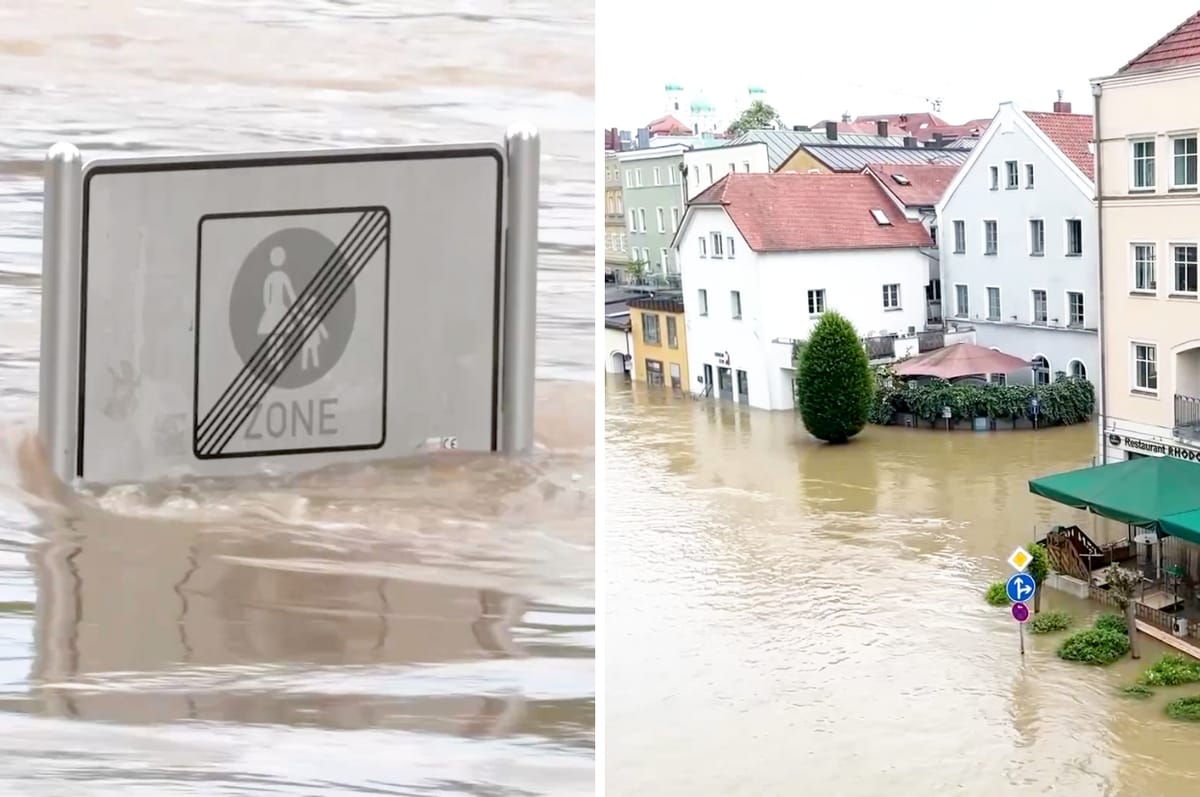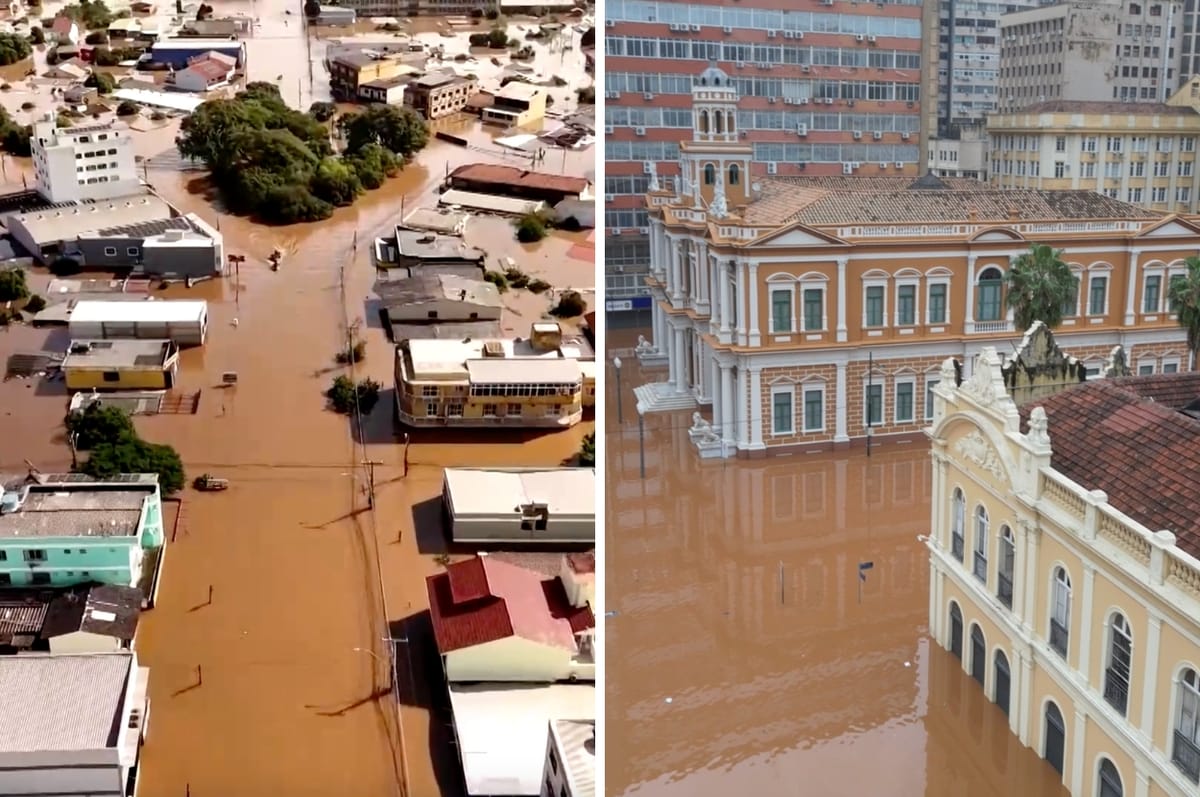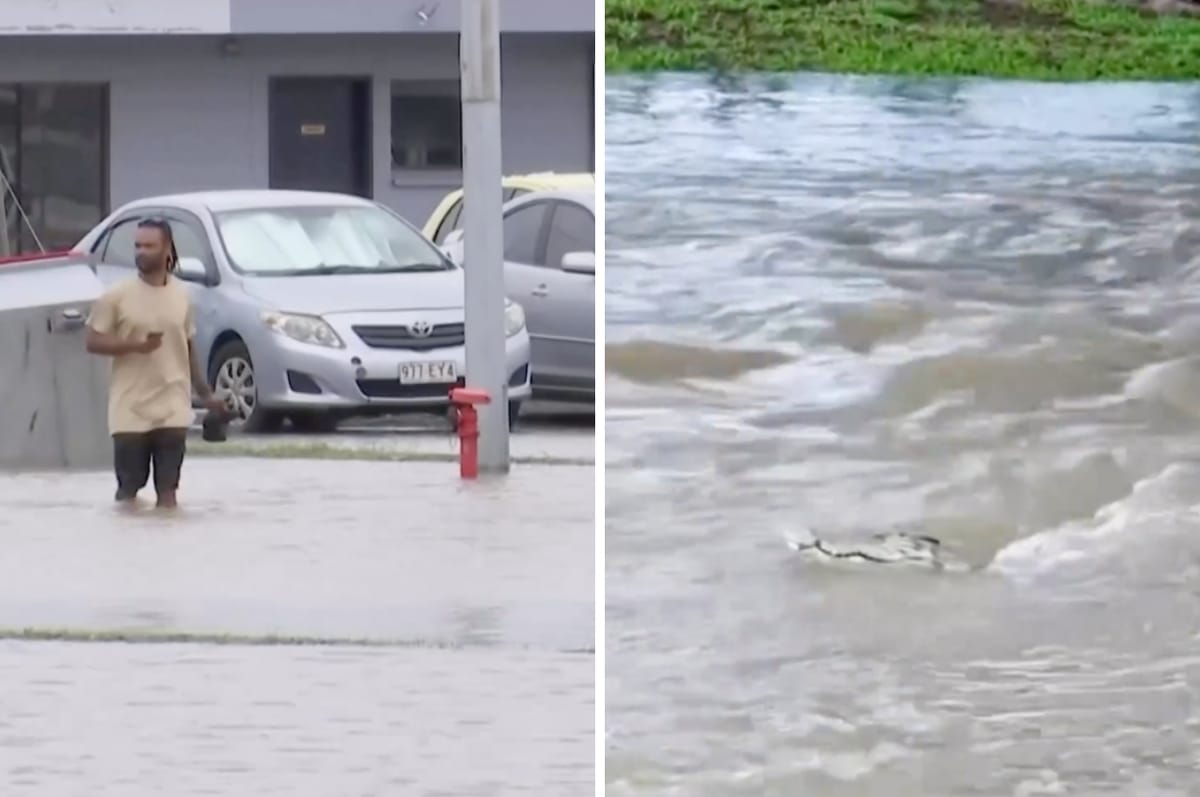Germany Was Hit By Huge Flash Floods, Killing Five People And Forcing Thousands From Their Homes
Some regions receiving more than a month’s worth of rain within 24 hours.

Flash floods triggered by heavy rainfall have wreaked havoc in parts of southern Germany, killing at least five people and forcing thousands to evacuate their homes.
The torrential downpour began on Friday, June 7, hitting the states of Bavaria and Baden-Württemberg, among other regions.
The flooding caused significant damage to infrastructure, including roads, bridges and buildings, with some regions receiving more than a month’s worth of rain within 24 hours, leading to unprecedented water levels, according to the German Meteorological Service (DWD).
Several towns declared a state of emergency as floodwaters submerged streets and highways, dams collapsed and a high-speed train derailed.
Videos shared on social media showed waves of water sweeping across the streets, turning it into an impassable river and inundating neighboring dwellings and cars.
A staggering amount of rain fell – 120 to 160 liters per square meter (30 to 40 gallons) between Friday and noon on Monday, which is significantly more rain than the region typically experiences in a month, according to meteorologists.
The town of Manching, located around 80 kilometers (50 miles) north of Munich, was one of the most severely affected in Bavaria, forcing some 800 people to evacuate after extreme rainfall burst the nearby river dams.
Water levels in the historic city of Passau, where three rivers meet, reached nearly 10 meters (32 feet) – the highest level in over ten years.
Three people were found dead in their flooded basements, and a firefighter died trying to rescue trapped residents while another remains missing.
Tens of thousands of emergency workers, including 800 soldiers, are rescuing stranded people by building emergency dams and establishing crisis accommodation.
German meteorologists warned that such events, which bring heavy rain and catastrophic damage, may become more frequent and worse with climate change.
You Might Also Be Interested In







